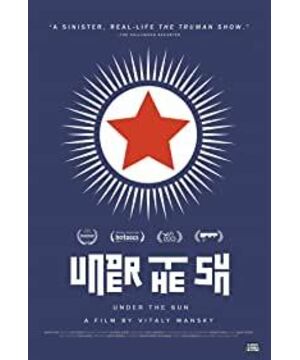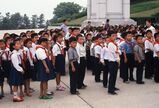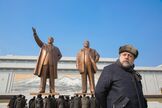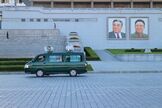The director may want to express the miserable life of North Koreans living in dire straits, but it is not convincing at all. The first thing that makes people question is his nondescript way of expression. The director wants to express the miserable childhood of children under political pressure through Xin Mei's tears. Then, the audience can only see the aggrieved tears shed by the little girl because of excessive filming pressure. . Is it possible that a child who has just entered primary school may cry because of political disapproval? The bigger possibility I can feel is that Xin Mei didn't want to make this film, she didn't want to practice dancing and repeat the half-squat exercise again and again, she wanted to eat dinner quickly and didn't want to repeat over and over how nutritious kimchi was, she I want to go out and play and don't want to listen to old grandpa telling boring stories. However, the director and many North Korean conductors have been pointing the camera at her and asking her to recite the lines, so she cried, isn't it just like the tears we didn't want to go to school when we were kids? It's far-fetched that the director could portray it as tears of political hatred at the end.
I wonder if the director followed up the life of the Xin Mei family when he returned to the United States excitedly with the videotape to win the Peace Prize. What would happen to their family after their leader saw the film? When the director released the film with Xiao Xinmei's deliberately interpreted tears, did the director ever worry about Xin Mei's future? She trusted Uncle Camera so much, she shed tears in front of him, helped him complete the work, and then what? The uncle of the cameraman returned to the West with the secretly recorded video, leaving her unwittingly in an unknown fate.
Finally, I would like to say that the biggest impression of watching this film is that although the filming techniques and concepts are very poor, the director has also recorded what the North Korean government wants us to see in the lives of North Koreans. Nothing more than that. I feel that this is not just talking about Xiao Xinmei's childhood, all the things she experienced, whether true or not, are like reminding me of the childhood that was gradually forgotten by me. Only hope that the past will not be repeated, take the neighbor as a warning, do not forget the history, and do not repeat it.
View more about Under the Sun reviews







